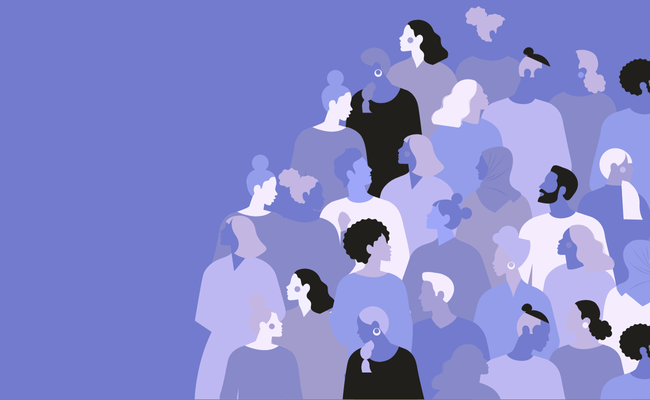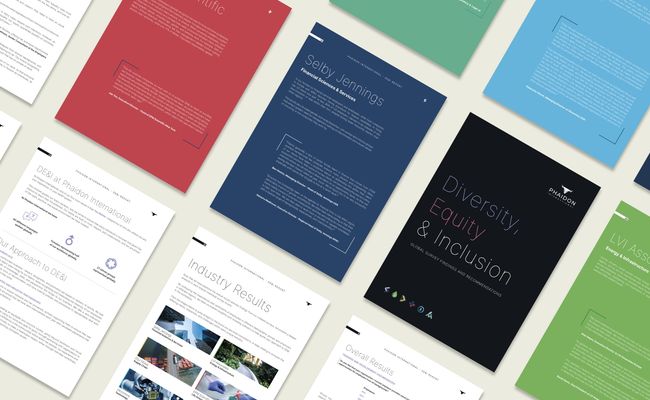It’s 2019 and still, fewer women than men achieve their corporate leadership ambitions. It’s a statement true of many professional industries, including recruitment.
So what are the barriers to strong and successful women reaching the very top? How do we overcome them and what role do men play – from barrier to a solution?
What is gender equality and why does it matter?
Gender equality is defined as the state in which access to resources, rights or opportunities is unaffected by gender. Gender equality is not about implying men and women are the same, butrecognisingthat they have equal value, and should receive equal treatment. One of the reasons the issue of gender equality matters is that on average, women in thelabourmarket still earn24%less than menglobally .
Women striving to reach the most senior positions within theirorganisationoften face a range of challenges that many of their male peers do not. From equality in the workplace to securing opportunities to connect with senior decision makers, and from remedying pay gaps to building credibility in a male-dominated environment, women must navigate an obstacle course of barriers torealisetheir career goals.
Survey findings identify caregiving responsivities and lack of confidence can impact women’s recruitment careers
Findings from a Women In Recruitment surveyincluded that 66% of women working in recruitment believe that family and caring responsibilities can negatively impact on their promotion and career prospects, highlighting that the struggles in achieving significant professional progression are very much an issue for the female side of the workforce. Other findings attributed to the disproportionate number of men versus women reaching top-tier positions within the industry include a ‘lack of confidence’ to pursue senior opportunities, with 41% of respondents identifying this as negatively impacting their career.
Key to overcoming each of these issues is an industry-wide adoption of flexibility, in all its guises from policy to practice. Flexible working arrangements to provide women greater opportunity to better balance family or caring commitments with their professional world; mentoring schemes that boost confidence and encourage women to learn from other like-minded and successful recruiting professionals; improving the way gendered language is used throughout hiring processes to better attract women into roles more typically targeted at their male peers; and a commitment to neutralise any remnants of out-of-touch cultures in the workplace to create a healthy professional environment that benefits men and women more equally.
Focus on diversity and mentoring promises a bright future for recruitment
Recruitment is a fast-paced, competitive industry with many companies now working hard to create diverse, respectful environments with equal opportunity for career development, based on merit rather than gender. For example, while men are often traditionally expected to more readily display some of the dominant qualities considered by many as vital for success within the industry – aggressive sales skills, for example – it is fast becoming better understood that equally-qualified women are more likely to under-sell these qualities during an interview.
This phenomenon is strongly reflected in findings from a survey – Ambition and Gender at Work – carried out by the Institute of Leadership and Management in which 73% of women acknowledged that barriers do exist for women seeking senior-level management positions. This arguably reflects an encouraging increase in awareness of the issue. Similarly, the survey identified that more men than women display definite career aspirations, with 52% of men compared to 45% of women stating they have a “fair to clear” idea of the role they aspire to. Shifts in attitude within corporate management signify a future that promises improved equal access to new opportunities and promotion for women.
And with CEOs focusing on talent diversity to bring a broader set of skills into the workplace, as well as an investment in targeted mentoring schemes, we are seeingorganisationsattract highly-qualified and experienced women into roles that previously would have been quietly earmarked for her male equivalent.
In order to support women currently working in recruitment, along with those who may wish to enter the profession, employers must clearly define career development opportunities for female staff, regularly review the quality of their diversity policies and training, provide networking and mentoring opportunities that not only connect women with other successful women but also with exceptional and inspirational male colleagues to further reinforce the platform for equality. By doing so, the industry and the professional women and men that work within it have the ability to make a long-lasting change that directly impacts and benefits the way in which future recruiters – women and men, at all levels – work, progress, and ultimately lead an evolving and equal workforce.
Get your free copy of Phaidon International’s‘Gender Diversity: The Commercial Imperative’here.
------
About Us
Phaidon International is the parent company of five leading specialist recruitment agencies. For more than 15 years, we have given clients and candidates the peace of mind that the recruitment process is in expert hands. Out continual investment in best-in-class technologies and consultant training enables us to recruit with speed, precision and accuracy. Today, we provide contingency, retained search and project-based contract recruitment across 11 offices in 6 countries. Contact us today to learn more about the company and the opportunities we offer.








